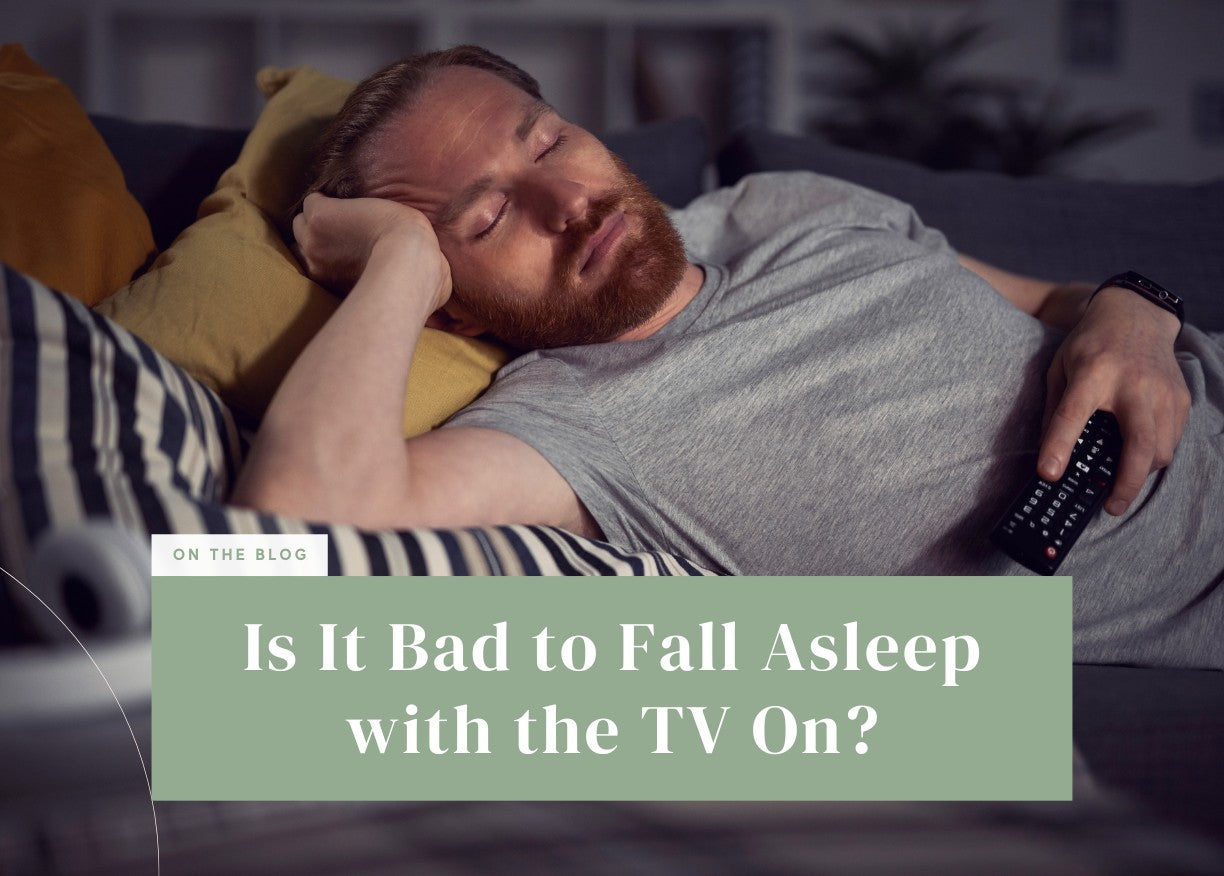Is It Bad to Fall Asleep with the TV On?
You’re tired, but your brain is still buzzing.
So you do what millions of people do every night—turn on the TV, let the noise fill the silence, and drift off to the sound of some familiar show.
Comforting, right?
But then you wake up at 2 a.m.
The lights are still flickering. The volume is up. You’re disoriented. And sleep?
It doesn’t feel as restful as it should have.
So… is falling asleep with the TV on really a bad thing?
Or is it harmless background noise that helps us relax?
Let’s look at what the science says.
The Pros: Why People Love Sleeping with the TV On

For some, the TV feels like a safety net:
-
It distracts from anxious thoughts
-
Provides a sense of company or routine
-
Helps mask background noises
-
Allows the brain to wind down slowly
If you live alone or struggle with overthinking, TV can feel like a comforting companion—especially if you stick to familiar, calming content.
But just because it feels good doesn’t mean it’s good for your sleep.
The Cons: What Happens to Your Brain While the TV Is On
Even if you fall asleep, your brain is still partially listening to what’s on the screen.
Here’s how that can affect your rest:
1. Disrupted Sleep Cycles

TV audio and light can prevent your brain from entering deep sleep and REM, the stages where true restoration happens.
2. Increased Cortisol and Reduced Melatonin

The blue light from screens suppresses melatonin (your sleep hormone), while fast-paced or emotionally charged content can raise cortisol (your stress hormone).
3. Fragmented Sleep and Micro-Arousals

Even if you don’t fully wake up, your brain reacts to volume changes, sudden music, or commercials, causing tiny sleep interruptions called “micro-arousals.” You won’t remember them—but your body will feel it the next day.
4. Long-Term Sleep Quality Decreases

Habitual TV sleepers often report less energy, lower sleep satisfaction, and more difficulty falling back asleep if they wake during the night.
So What’s the Alternative?
You don’t have to give up the comfort of sound—just replace it with something more sleep-friendly:

✅ Switch to audio-only content like sleep podcasts or ambient sound
✅ Use a sleep timer on your TV so it turns off automatically after 30–60 minutes
✅ Keep volume low and brightness dimmed to reduce disruption
✅ Avoid stimulating content (no crime shows, plot twists, or fast commercials)
And make sure your bed is doing the heavy lifting—because real rest starts with real comfort.
The Honey Hybrid Organic Mattress from Sweet Zzz adapts to your body, helping you fall asleep faster and stay asleep longer. Add in our bamboo sheets for breathability and a plant-based pillow for neck support, and you might find you don’t need the TV at all.
Final Thoughts: Soothing Doesn’t Have to Mean Stimulating
Falling asleep with the TV on isn’t the worst habit in the world—but if you’re waking up groggy, restless, or still tired, it might be time to rethink your nighttime routine.
Sleep should feel like peace, not distraction.
And your brain deserves a break—even from your favorite show.




